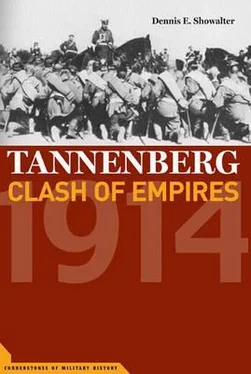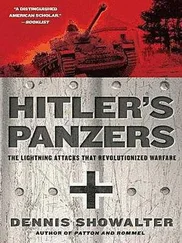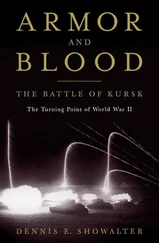Russia, on the other hand, combined tremendous economic and military potential with the power of an idea. Her Alsace-Lorraine was the entire Balkan peninsula, if not Central Europe itself. In Holstein’s view Russia’s geopolitical ambitions threatened—or promised—not merely to bring all southeastern Europe under her sway, but to generate what later diplomatic generations would describe as Austria’s Finlandization, if not her complete disappearance. 33In the aftermath of the Bulgarian crisis, Holstein worked in tandem with the chancellor to foster an anti-Russian coalition of the great powers. The Mediterranean Agreements of 1887, linking Britain, Italy, and Austria in defense of a regional status quo, gratified him at least as much as they did Bismarck. But the fundamental dichotomy between the foreign policy positions of the two men remained. Bismarck wanted to keep Germany in the middle, holding the balance between Russia on one hand, Austria and the other Mediterranean powers on the other. For Holstein and the increasing number of his supporters, the new treaties merely cleared the ground for a confrontation that would show Russia her place at the international table once more—a place she had to date been unwilling to accept by peaceful persuasion. 34
In a Russia already suspicious of German good will and German intentions, Panslavs and nationalists put increasing, and ultimately successful, pressure on Alexander to abandon the Three Emperors’ League. An increasing number of voices suggested the virtues of a French connection. Bismarck responded by negotiating the Reinsurance Treaty of June, 1887. Its key was a mutual guarantee of neutrality except in case of a German attack on France or a Russian attack on Austria. But the belligerence and antagonism shown by the Russian press and the Russian foreign office during the negotiations boded ill for a long-term German-Russian entente. Should Germany’s western front explode, was any piece of paper strong enough to bind Russia to its terms? 35
Economic tension exacerbated diplomatic suspicions. Before the Reinsurance Treaty was negotiated, Bismarck was under pressure from both market agriculture and heavy industry to respond to a recent round of Russian tariff increases. In May, 1887, the tsar’s government introduced new restrictions on foreign ownership of property in Russia, generating corresponding anxiety among actual and prospective German investors. Russian securities began to diminish in attractiveness and drop in value on the Berlin bourse. The German press, partly with Bismarck’s encouragement, began to raise alarms. The Reichstag debated the wisdom, political and economic, of continuing to accept Russian commercial paper. On November 10, Bismarck issued the Lombardverbot.
The order’s scope should not be exaggerated. It simply forbade the German state bank to accept Russian securities as collateral. Russia did begin transferring securities out of Germany after November 10. Some went to France, some back home for purchase by private banks, some to other European capitals. This, however, was not a politically motivated reaction to a diplomatic initiative. Russia’s government still had no real cabinet structure. Ministries worked in separate compartments, often virtually unaware of each other’s problems. Attempting to influence Russian foreign policy directly by financial pressure correspondingly resembled attracting the attention of a dinosaur by giving the beast a hotfoot. By the time the message reached its intended goal, any response was likely to be irrelevant to the current situation. 36
Austria for her part had reacted to the nonrenewal of the Three Emperors’ League with a burst of anxiety. Russian troop concentrations in Poland and the Ukraine generated Habsburg demands for clarification of the Dual Alliance of 1879. Specifically, the Austrian generals pressed their German counterparts to accept clear Russian preparations for war as a casus belli. Their concerns found support in Germany. Moltke’s deputy and designated successor, Quartermaster-General Alfred von Waldersee, shared with Holstein an ultimately pessimistic view of the prospects for retaining Russia’s good will. By November, he and his aged superior were agreed on the military advantages of a preventive war, to be launched during the winter of 1887. 37
Bismarck rejected this concept out of hand. He insisted that provoking a war was directly contradictory to German policy. More to the point, he was unwilling to surrender the making of that policy to military considerations. Nor was he standing alone. Bernhard von Bülow, the future chancellor, at the time secretary in the German embassy to Russia, spoke during the winter for common sense. Should war be fought, Bülow declared, it must be a war to the finish, a war which would cripple Russia for at least a quarter-century. He described the Russians as more fanatical, more capable of sacrifice, and more patriotic than the French. For victory to be permanent, for Russia to be incapable of taking revenge, her black-earth provinces must be devastated, her coastal towns bombarded, her commerce and industry crippled. She must be driven from the Black and Baltic Seas. Ultimately, she must be deprived of her western provinces. To do that would require a sequence of victories carrying German troops to the Volga—an eerie prefiguring of events in 1942. Given the obvious difficulties of winning such victories, Germany was far better advised to get along with her eastern neighbor.
And there lay the rub. It took two to agree, but only one to quarrel. Bülow went on to castigate the weakness and stupidity of Russian government circles, the systematic poisoning of public and political opinions against Germany. Should Germany ever stand alone, Russian would immediately join with the French against her. Any promises to the contrary would be swept away by the tides of Panslavism and Germanophobia. The real guarantees of peace were armed force and alliances, particularly the alliance with Austria. Germany could expect favorable results only from a policy of mistrust expressed in the most determined terms. 38
Like other war scares before and since, that of 1887 blew over almost as rapidly as it emerged. But Bülow’s letter reflected a changing attitude in German politics. Even those refusing to follow Holstein in regarding the tsar’s empire as an implacable foe were beginning to concede a level of inevitability in Russo-German tensions that was foreign to Bismarck’s argument that only interests, not friends or enemies, were eternal.
Military considerations sharpened the anxiety, especially for Waldersee, who finally succeeded Moltke in 1888. The new chief of staff’s image as a Russophobic political general should not obscure the reasonable questions of strategy and operations that influenced his views on broader issues. The East, Waldersee had declared in 1884, was a far more dangerous theater for Germany than the West. Not only was the road to Berlin virtually without natural obstacles, but every yard of ground abandoned meant the loss of historic Prussian territory to an all-destroying enemy. 39
The existing war plans developed by Moltke depended on Russian cooperation: specifically, Russian readiness to deploy substantial forces in the Polish salient, exposed to an Austro-German pincers. Since the 1880s, in an effort to counterbalance Germany’s advantage of rapid mobilization, almost half the Russian army had been concentrated in the empire’s western military districts. A British war office report circulated in January, 1893, highlighted the fact that in the previous decade the garrisons of those military districts not on the European land frontier had remained almost the same size. In Kiev, Vilna, and Warsaw, on the other hand, the garrisons had been augmented by 124 battalions, 148 squadrons, and 61 field batteries. 40
Читать дальше












